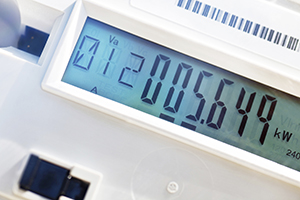Changes known as P272 are on the way that will implement the mandatory use of Half-Hourly (HH) data to ensure more
The Carbon Trust estimates that you could cut your hotel's energy bills by as much as 20% just by implementing simple, inexpensive energy efficiency measures.
Lighting control, optimising room and water temperatures, and raising energy awareness among staff are just some of the options. Equally importantly, energy efficiency measures are likely to benefit the reputation of your establishment.
Here are some easy energy efficiency tips to get you started.
Heating
- Avoid overheating bedrooms and corridor areas. This is not only expensive, it can also be uncomfortable for guests; aim for 19-21°C.
- Ensure good control of your heating system. Use timer switches and thermostatic radiator valves, and check that thermostats are unaffected by draughts, sunlight, radiators and fireplaces.
- Service your boiler regularly. This could help you save up to 10% off your annual heating costs.
- Ensure that pipework feeding bedrooms and common areas is well insulated.
Hot water
- Do not overheat hot water. A temperature of 60°C is ideal: it provides comfortable hot water and is hot enough to kill legionella bacteria.
- Consider fitting spray water taps, as they use less hot water and energy (and water).
- Make sure that leaking taps are repaired promptly.
- Ensure that pipework is well insulated.
Air conditioning
- Avoid operating the heating and cooling systems simultaneously. This can be a common problem in hotels. Switch off heating when a temperature of 21°C has been reached. In addition, back-of-house temperatures can probably be set lower than those at front of house.
- Avoid using air conditioning for cooling until the temperature exceeds 23-24°C.
- Implement a building management system (BEMS). These systems control and monitor heating, ventilation and air conditioning, and can reduce total energy costs by 10% or more.
Lighting
- Install occupancy and daylight sensors so that your lights are only on when required.
- Use low-energy lighting. Replace tungsten GLS lamps and T12 fluorescent tubes with much more energy efficient items such as T5 tubes or compact fluorescent or LED lamps. These could help you reduce the electricity you consume for lighting by up to 80%. Furthermore, some of the newer bulb types last more than eight times longer than tungsten GLS lamps, and, as they produce less heat, they will put less strain on the cooling required from your air conditioning system.
Refrigeration
- Defrost fridges regularly; check the seals on cold rooms and fridges; and keep condensers and evaporators clean.
- When replacing or buying new, look for energy efficient units such as those that are A rated. If possible, buy A++ units, as they have the lowest electrical running costs.
- Keep fridge doors closed as much as possible.
Did you know?
Surveys consistently illustrate that customers are more inclined to choose a hotel that does not damage the environment and some are even prepared to pay a premium to ensure this.
By implementing energy efficiency measures, lighting energy costs can sometimes be reduced by more than 50%, while still enhancing the atmosphere crucial to the business.
Source: Carbon Trust



